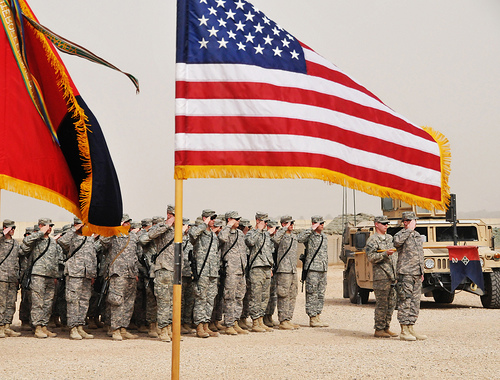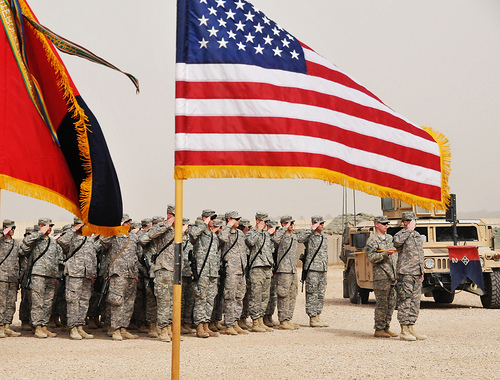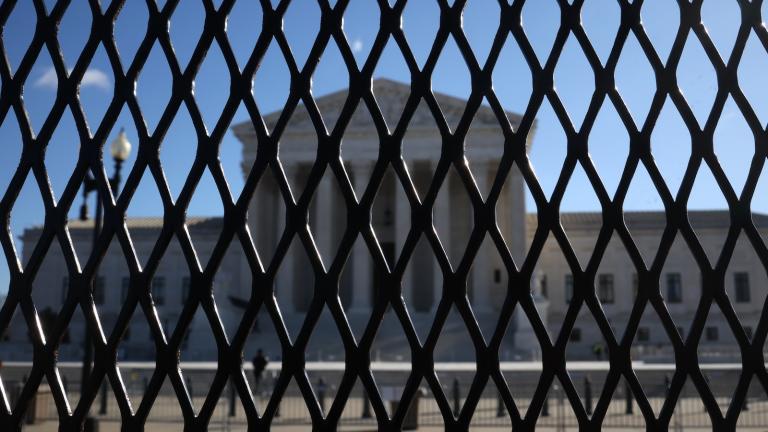 Photo: U.S. ArmySierra Club chairman Carl Pope* wonders, “Is Veterans Day the new Earth Day?“:
Photo: U.S. ArmySierra Club chairman Carl Pope* wonders, “Is Veterans Day the new Earth Day?“:
Did that question get your attention? Thought it might.
My answer is “not yet, but maybe soon.” One of the realities of American society is that big social change often reaches the tipping point only when it becomes embodied in the military. The idea that farm boys could go to college had been around for a while, but it never really became mainstream until the GI Bill. Color-blind treatment of minorities in our society is still a hugely unfinished national challenge, but the military was one of the first institutions to integrate.
It’s a provocative argument that a clean-energy revolution depends on the military signing up. The good news is that it already has. The Pentagon’s primary planning review released earlier this year asserted that “climate change, energy security, and economic stability are inextricably linked.” Military leaders understand that climate-induced storms, droughts, and floods make the world a more dangerous place (see: Pakistan this summer). They understand that the $66 billion the U.S. spent on Saudi Arabian oil in 2008 isn’t making anyone safer — Saudi Arabia was the top source of funding for Al Qaeda and other extremist networks that year, according to the government’s top financial counter-terrorism official.
Earlier this year, I talked to Iraq War veterans who were moved to campaign for a national clean-energy plan after seeing war-zone drivers risk their lives to bring generator fuel to remote outposts that could have been powered by solar panels.
“It’s hard to find an issue in the United States that has such an impact on national security [as oil dependence],” Matt Victoriano, a former Marine who served in Iraq, told me. “It’s evident to everyone that our dependence on foreign oil is fueling terrorist insurgencies, and we’re paying for it through our military. We’re funding both sides of a war, which is pretty ridiculous.”
Pentagon leaders have plans to increase fuel efficiency and use more rechargeable energy devices in combat zones. Military leaders in other developed countries are just as concerned with climate threats.
Meanwhile, our elected leaders in Congress are failing to act on the threat of climate change. They might try listening to the military leaders they’re so fond of praising.
*Correction: Carl Pope wrote the Veterans Day post. I had mush for brains yesterday when I attributed it to the wrong Sierra Club leader.




